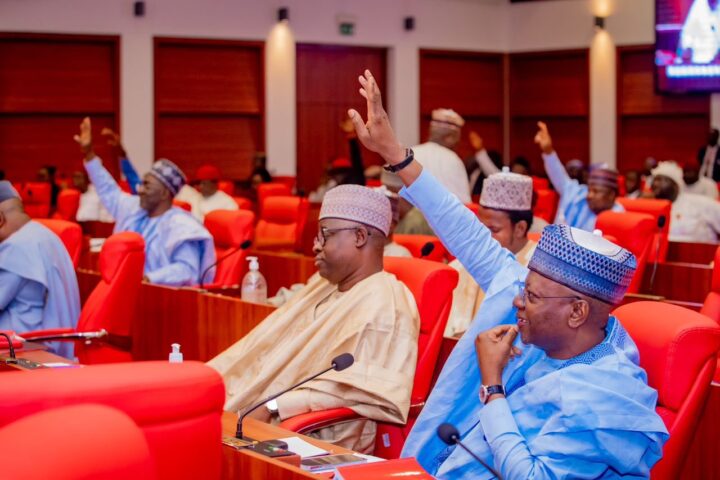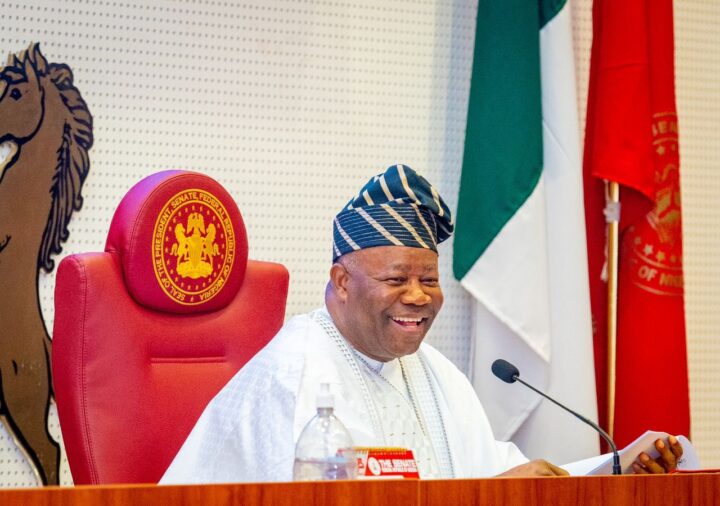Nigerian senate | File photo
The senate has passed for second reading a bill seeking to regulate and formalise employment in the informal sector by licensing private job agencies.
Titled: ‘Informal Sector Private Employment Agencies (Regulation) Bill, 2025’, the legislation is sponsored by Sani Musa, senator representing Niger east.
The bill proposes that the National Directorate of Employment (NDE) be empowered to license and monitor private employment agencies, which would register workers, ensure fair recruitment, and protect employees’ rights and benefits.
Leading the debate on the bill, Musa said informal workers — including domestic workers, apprentices, and interns — remain largely unprotected and vulnerable despite constituting over 65 percent of the Nigerian workforce.
Advertisement
“The informal sector is usually regarded as the residual labour market where labour is highly heterogeneous and sources of income are not largely wage dependent, working time is discretionary and some jobs are not paid for at all,” he said.
“Operations in the sector are usually in small scale; production technique is labour-intensive and ownership is usually private. In most cases, the workers in this sector are family members, apprentices and few paid employees.”
He said the sector is plagued by labour rights violations, poor wages, and non-compliance with International Labour Organisation (ILO) conventions, despite being a vital economic lifeline for millions.
Advertisement
“The informal sector of the Nigerian economy show evidence of violation of employees’ rights and non-implementation of labour regulations,” he said.
“This bill is designed to correct the decent work deficit by promoting fair treatment, decent remuneration, and protection of workers’ rights in line with ILO conventions to which Nigeria is a signatory.”
Musa said the bill would establish a framework for the NDE to issue licences only to agencies that meet financial accountability, legal compliance, and proper documentation criteria.
“This bill empowers the National Directorate of Employment to issue licences and monitor the activities of Employment Agencies throughout the country.”
Advertisement
He added that licensing officers would be deployed nationwide to enforce compliance and ensure transparency in the operations of these agencies.
Contributing to the debate, Adams Oshiomhole, senator representing Edo north, raised concerns about potential abuse of the licensing system and the outsourcing of government responsibilities.
“We cannot create multiple centres of fraud under the guise of private sector participation,” he said.
“It’s already happening — security staff earn as little as N40,000 while appearing to work for the government. This bill could make that kind of abuse even worse.”
Advertisement
Diket Plang, chairman of the senate committee on labour and productivity, reminded the chamber that a similar bill aimed at domestic workers had already undergone a public hearing.
“This job is already the statutory responsibility of the federal ministry of labour. We can consolidate the two bills,” Plang said.
Advertisement
Osita Izunaso, senator representing Imo west, also urged harmonisation of the bill with existing legislation to avoid duplication and conflict.
The senate subsequently referred the bill to the committee on employment, labour and productivity, which is expected to submit its report in six weeks.
Advertisement









